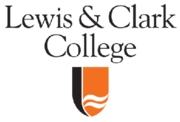Founded in 1867, Lewis & Clark College is a private liberal arts institution nestled within the picturesque environment of Portland, Oregon. With an undergraduate student body of approximately 2,000, this institution provides a close-knit community atmosphere that encourages intellectual engagement and personal growth. Its scenic 137-acre campus is distinguished by both its intimate size and its proximity to the vibrant city life of Portland, allowing students to enjoy a tranquil learning environment within reach of urban resources.
Lewis & Clark College stands out for its strong international focus and commitment to environmental sustainability. It is home to the renowned Overseas and Off-Campus Programs, which offers students the opportunity to study in over 40 countries, fostering a global perspective in its community. The school's environmental studies program is notably rigorous, and the campus reflects this commitment with its LEED-certified buildings and an overarching emphasis on green initiatives. Furthermore, the college's Law School is highly regarded for its Environmental, Natural Resources, and Energy Law program, shaping advocates and policymakers at the forefront of environmental stewardship.
Accentuating the positives, Lewis & Clark College boasts a high rate of Fulbright scholars among its graduates, illustrating the superior quality of its academic programs and the success of its alumni. The college's supportive and inclusive community often receives acclaim, which is reflected in initiatives such as the Ray Warren Symposium on Race and Ethnic Studies-a student-led event that delves into crucial social issues. Additionally, the institution emphasizes hands-on experiences, as evident from numerous undergraduate research opportunities and community engagement projects that allow students to apply their learning beyond the classroom.
Despite these strengths, Lewis & Clark College faces certain challenges, such as the rising costs of higher education which can be a barrier for prospective students. While the college offers financial aid, the increasing tuition fees have necessitated a greater reliance on this support, potentially affecting its accessibility. Furthermore, being primarily a residential campus, Lewis & Clark can see fewer opportunities for non-residential students, especially in terms of housing and integration into campus life, which has been a point of contention for a segment of the student body that seeks to maintain a balance between academic and off-campus commitments.



